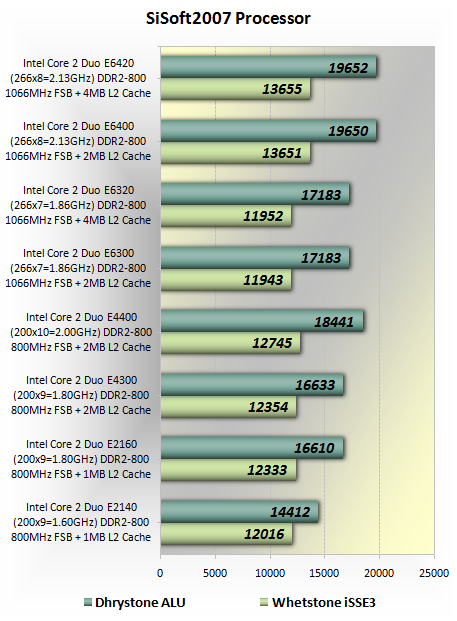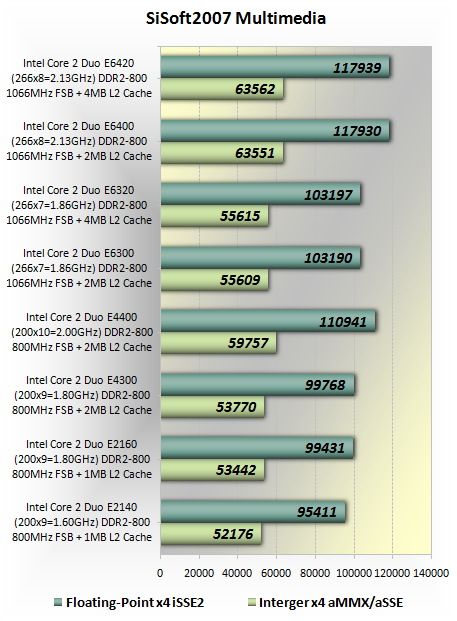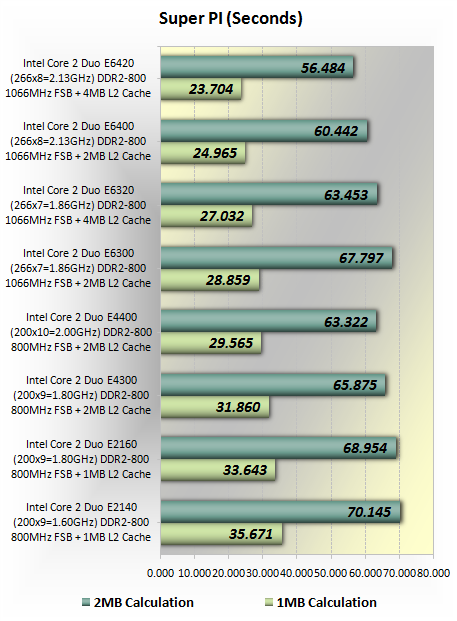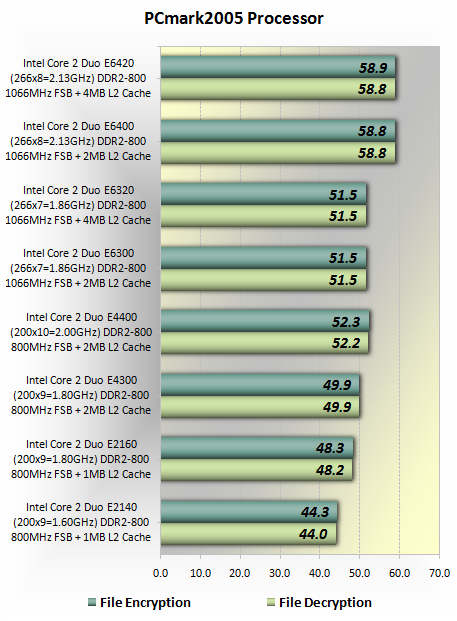CPU Performance


The SiSoft2007 processor results also place the E2160 and E4300 neck and neck, as both operate at 1.80GHz. Once again the L2 cache size is not a factor in this particular test. Naturally the E2140 was slightly slower than the E2160 as it is clocked 200MHz slower. The E2140 was 21% slower than the E6420 in the multimedia aMMX/aSSE performance test. This is not a huge performance loss, though keep in mind this test does not factor in the performance hit created by reducing the L2 cache.

While Super PI performance is affected by things like L2 cache size and FSB speed, it seems to be more influenced by clock speed when comparing processors based on the same architecture. Here we see that the E2160 is noticeably slower than the E4300 despite both processors being clocked at 1.80GHz, as the E2160 has half as much L2 cache. The E2140 is again even slower than the E2160, as you would expect. The E2140 is 33% slower than the E6420 in this test, meaning it took this much more time to complete the 1MB calculation.

The PCmark2005 processor performance test also fails to measure L2 cache performance, as it focuses primarily on clock speed when looking at processors based on the same architecture. The E4300 was just 1MB faster than the E2160, while the E2140 was 4MB slower than the E2160. This made the E2140 almost 33% slower than the E6420.